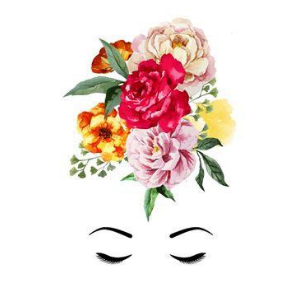
The Stories Shame Tells: Unmasking the Rules That Keep You Small

Shame, shame, shame. I don't wanna go to Mexico no more, more, more.
You know that feeling. That warm wash that comes over you when you’re under the spotlight—maybe after a public misstep, a harsh critique, or the paralyzing fear that you’re about to be found out. It’s a feeling that makes you want to get small, to disappear. That’s shame. As renowned researcher Brené Brown defines it, shame is the “intensely painful feeling or experience of believing we are flawed and therefore unworthy of acceptance and belonging.” It’s not about something you did; it’s a story about who you are.
And what are the stories that shame tells? In my personal experience and in my work with brilliant, high-achieving women of color, I’ve seen that shame is an enforcer. It forces us to follow certain rules that have been created in our world by past experiences—rules enacted by parents, society, school, culture, religion, or community.
For us, as visible leaders, artists, and change agents, these rules are often tighter, more rigid, and carry a heavier weight. They are the unspoken mandates of the "crooked room," where we are constantly contorting ourselves to fit into a space that was not built for us. These are the rules that say: Don’t be too loud. Don’t take up too much space. Be a role model, but don’t outshine anyone. Be perfect. Don’t fail.
These rules are tools of oppression. And my practice is this: when I notice that a rule I have is based in a culture that I perceive as an oppressive tool, I then assess how I feel about it.
This is the first step in straightening your crown. It’s a foundational principle of the Be True Crown Straightening Approach we use here at Be True Counseling: Cognitive Restructuring. This is simply the work of identifying the thought, tracing it back to the rule it comes from, and then questioning the rule itself.
Think about the last time you felt that wash of shame.
- What was the situation?
- What was the story you told yourself about your worth in that moment? (“I’m not smart enough for this.” “I’m an imposter.” “I let everyone down.”)
- Now, what is the rule that story is enforcing? (“I must always have the right answer.” “I must never show weakness.” “The success of my entire community rests on my shoulders.”)
Recognizing these rules is the first, crucial step toward liberation. You cannot dismantle a system you cannot see. Shame wants to operate in the dark, whispering its stories and enforcing its rules from the shadows. Our job is to turn on the lights. To see the rule for what it is—not an indisputable truth, but a relic of a system designed to keep you in a position of subjugation.
Once you’ve identified the rule, the next question becomes obvious. Now that you see it… what are you going to do about it?
Feeling the weight of those old, oppressive rules is an exhausting burden to carry alone. The first step to freedom is naming them in a space where you will be understood. Be True Counseling provides expert, culturally competent care for women like you. Let’s work together to turn on the lights. Contact Be True Counseling Today, https://betruecounseling.com/#contact_us.
#BeTrueCounseling #CrownStraightening #WomenOfColor #ShameResilience #BlackTherapists #Leadership #Authenticity #CognitiveRestructuring #MentalWellness #BreakTheRules
Message Me
I'll be delighted to hear from you.
Get In Touch
Give us a call
(215) 284-9107Send us an email
[email protected]